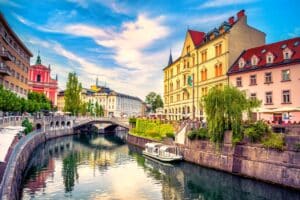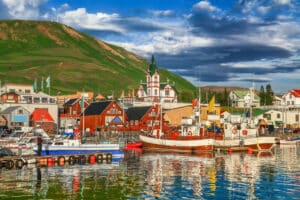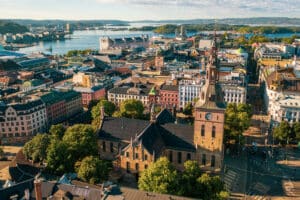Switzerland, known for its high standard of living and stable economy, has consistently ranked among the safest places globally.
Does this hold true in 2024?—Absolutely. Switzerland’s reputation for safety endures.
But safety isn’t just about dodging crime! Factors like natural disasters, bad weather, and carbon monoxide can’t be ignored. Let’s go through the safety situation in Switzerland in detail so all that’s left for your visit is to enjoy.
Are you planning a last minute trip to Switzerland? We’ve put together all the resources you’ll need for a fun & safe travel:
🛌 Best & Safest Places to Stay in Switzerland:
👉 Grand Resort Bad Ragaz – 3 swimming pools, Free WiFi, Superb breakfast
👉 Lenkerhof Gourmet Spa Resort – Spa and wellness centre, Family rooms, Bar
👉 Royal Plaza Montreux – Fitness centre, 3 restaurants, Free WiFi
👉 The Chedi Andermatt – 2 swimming pools, Skiing, Spa and wellness centre
⛱️ Fun Activities & Tours in Switzerland:
👉 Tandem Paragliding Experience from Interlaken
👉 Kayak Tour of the Turquoise Lake Brienz
👉 Paragliding over the Lauterbrunnen Valley
🚗 Best & Safest Switzerland Transportation Services:
👉 Airport Pickup Service – Welcome Pickups
👉 Rent a Car – DiscoverCars
🙏 Stay Safe While Travelling:
👉 Safetywing (for medical insurance)
👉 VisitorsCoverage (for trip insurance)
Is Switzerland Safe?

Switzerland is ranked as the 10th safest place on Earth, right after Japan. Historically, Switzerland skillfully avoided both world wars—its last conflict was a civil war in 1847 called the Sonderbund War. And it’s all gone uphill from there.
Zurich, for instance, shines as a global finance hub and is the 19th safest city worldwide. Moreover, Switzerland boasts a remarkable 4% unemployment rate, with an impressive 86% of citizens holding high school diplomas. This strong educational foundation and ample employment opportunities play a crucial role in diminishing interest in criminal activities. Even protests and demonstrations tend to be notably peaceful.
Given this framework, your visit to Switzerland is set to be safe. But there must be some precautions to carry with you, right? Here’s an overview:
- International travel advisories: Switzerland is in the level-one safety category—exercise only normal precautions
- Crime rating: Very low, 25.11
- Walking alone during the day: Very safe
- Walking alone during the night: Safe
- Common crimes: Property crimes
- Cities with the most crime: Solothurn and Basel
- Public transport: Safe, but keep an eye on your valuables
- Tap water: Safe
- Natural disasters: Potential for avalanches, floods, landslides, and earthquakes in various areas
Travel Advisory for Switzerland
The United States, Canada, the United Kingdom, and Australia travel advisories encourage their citizens to exercise normal precautions when in Switzerland, placing it in the “Level One” safety category.
Authorities highlight potential concerns like pickpocketing and purse snatching in cities such as Basel, Bern, Geneva, and Zurich, particularly at airports, railway stations, and trains.
Additionally, travelers are cautioned about the possibility of natural disasters such as avalanches, flash floods, rock falls, mudslides, and sudden weather changes in alpine areas.
Tourists are also advised to be cautious about spiked food and drinks, credit card and ATM fraud, cybercrime, and potential scams related to online dating.
These are the main incidents that you need to be cautious of—nothing too out of the ordinary. Practice normal precautions and you’ll be safe.
A Comprehensive Look at Switzerland Crime Rates
Switzerland has a super low crime rating according to Numbeo—25.11. The most common crimes are related to theft, such as burglaries, and the stealing of vehicles and bicycles.
Violent crime is much less common in Switzerland compared to other countries. In 2021, the country recorded only 42 homicides among its 8.6 million people, securing its place as the country with the fifth lowest homicide rate in Europe—lower than countries like Iceland, Netherlands, Germany, and France.
Solothurn and Basel are the cities with the highest concentration of crime in Switzerland. In 2022, Solothurn reported a total of 196.5 crimes per 1,000 inhabitants, while Basel had 125.5 per 1,000. Other urban areas like Zurich and Lausanne also reported high crime rates, though not as high as Solothurn and Basel.
| Safety Concerns | Crime Rate | Status |
| Overall Crime Level | 21.52 | Low |
| Increase in Crime (Past 3 Years) | 55.08 | Moderate |
| Home Break-Ins and Thefts | 23.69 | Low |
| Mugging and Robbery | 20.08 | Low |
| Car Theft | 14.81 | Very Low |
| Theft from Vehicles | 22.08 | Low |
| Personal Attacks | 22.75 | Low |
| Verbal Insults | 26.27 | Low |
| Racial, Ethnic, Gender, or Religious-Based Attacks | 19.80 | Very Low |
| Drug Use and Dealing | 40.42 | Moderate |
| Property Crimes (Vandalism and Theft) | 31.23 | Low |
| Violent Crimes (Assault and Armed Robbery) | 18.83 | Very Low |
| Corruption and Bribery | 20.48 | Low |
| Safety Walking Alone in Daylight | 84.49 | Very High |
| Safety Walking Alone at Nighttime | 68.71 | High |
Police Presence in Switzerland
Swiss police are spread out. You can easily recognize them by their dark blue or black uniforms, with the word “Polizei” displayed on the left side of the collarbone and the back of their shirts or jackets.
In addition to regional and federal police, the Swiss Federal Railways have implemented special officers to maintain order in public transport, especially during nighttime travel. You can recognize them by the “Sicherheit” label on their uniforms.
Swiss police are approachable and helpful to tourists. If you need directions, transport schedules, ticket information, or any kind of assistance, they are there for you. In emergencies, you can reach the police by dialing 117, 112, and through the internationally recognized numbers 911 and 999.
Public Transportation Safety in Switzerland
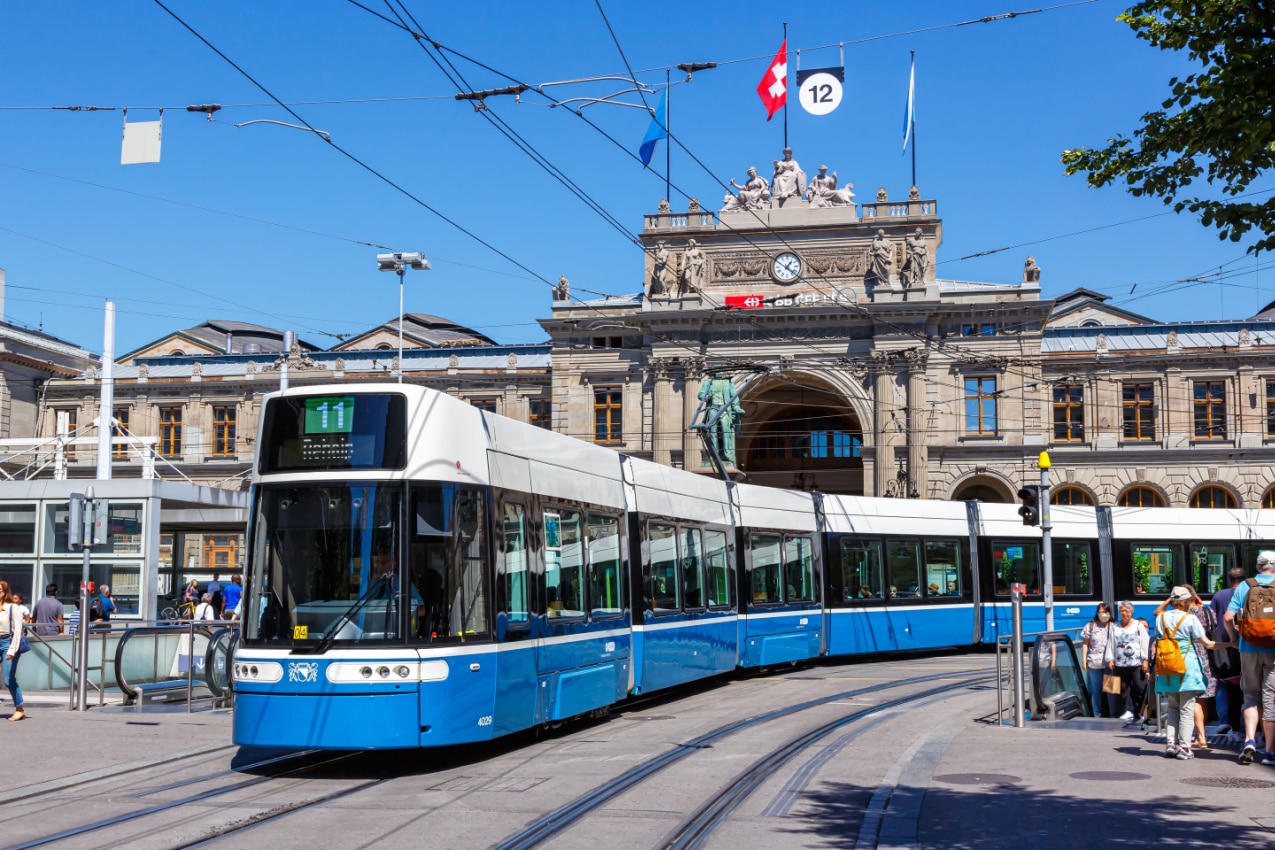
Switzerland’s public transportation is very safe. The railway officers are there to ensure order in public transportation. They have the authority to protect, search, check tickets, or arrest individuals.
You’ll encounter a diverse mix of passengers riding public transport. Morning and evening trains often carry students, apprentices, and commuters. At night and during the weekend, you’ll come across partygoers traveling to nightclubs, and upon their return, they may be lively and drunk.
Regardless of the time you’re on public transport, be polite, keep conversations at a low volume, and stay vigilant for potential pickpockets. And remember, if anything goes sideways, the railway police are there to assist you.
Medical Care Quality in Switzerland
Switzerland’s healthcare system is globally recognized for its outstanding quality and innovation. According to the Health Index Score of 2023, Switzerland holds the fourth spot for the best healthcare in Europe.
For those in need of medical care, Switzerland boasts a handful of outstanding hospitals, including:
- Centre Hospitalier Universitaire Vaudois, Lausanne
- Clinique de La Source, Lausanne
- Universitätsspital Basel, Basel
- Claraspital, Basel
- Bethesda Spital, Basel
- Universitätsspital Zürich, Zürich
- Klinik Hirslanden Zürich, Zürich
- Hirslanden Klinik Im Park, Zürich
- Privatklinik Bethanien, Zürich
- Stadtspital Triemli, Zürich
- Lindenhofspital Bern, Bern
- Inselspital Bern, Bern
- Hirslanden Klinik Aarau, Aarau
- Hôpital de la Tour, Meyrin
- Clinique Générale-Beaulieu, Genève
- Les Hôpitaux Universitaires de Genève (HUG), Genève
- Luzerner Kantonsspital, Luzern
- Hirslanden Klinik St. Anna, Luzern
- Spital Zollikerberg, Zollikerberg
- Kantonsspital Winterthur, Winterthur
Travel insurance isn’t mandatory for visitors to Switzerland, but it would be in your best interest to have one as it provides coverage for potential healthcare costs and gives you peace of mind.
Here are some options to consider:
- Visitors Coverage Insurance
- Insured Nomads Insurance
- SafetyWing Insurance
- Faye Insurance
- Travelex Insurance
- Nationwide Insurance
- Generali Global Assistance Insurance
If you require medical attention in Switzerland, rest assured that you will receive some of the greatest care available. But remember, their services don’t come at a cheap price, so make sure you get travel insurance!
Is It Safe to Travel Solo in Switzerland?
As we’ve reiterated over and over again, Switzerland is renowned for its high levels of safety, so solo travelers should have nothing but good experiences here.
Local authorities are approachable, professional, and very helpful in times of need. Navigating from point A to point B is easy thanks to the punctual public transport system. The majority of locals are respectful and polite, creating a comfortable environment for solo female travelers.
Nonetheless, as in any country, it’s wise to exercise caution, especially at night or in less crowded areas. Petty crimes such as pickpocketing or bag snatching can occur, but they are relatively rare.
To enhance your solo experience, always remain aware of your surroundings and keep your valuables secure and out of sight!
Perils of Nature: The Risk of Natural Disasters in Switzerland
Switzerland, nestled in the heart of Europe, is fortunate to be free from common natural disasters such as hurricanes or volcanoes. However, it does face certain natural hazards — avalanches, floods, landslides, and earthquakes.
Avalanches
Switzerland, celebrated for its breathtaking Alps, boasts a landscape dominated by steep mountain slopes. These regions thrive with ski resorts, but the combination of snow and precipitous terrain increases the potential for avalanche incidents.
During the winter of 2022-2023, the Snow and Avalanche Research (SLF) reported 137 avalanches in Switzerland, impacting 222 individuals. This figure represents nearly double the number of people affected compared to winters over the last two decades.
While avalanches are a natural hazard, Switzerland has extensive experience in managing and mitigating the risks associated with them. Many resorts offer avalanche awareness programs and there are many local weather and avalanche forecasts that you can check out before venturing into mountainous areas.
If you plan to engage in activities like skiing or snowmobiling, consider hiring a certified guide!
Floods
Floods can occur in Switzerland during heavy rainfall or when snow in the mountains melts.
The most recent flood occurred on December 13, 2023, when heavy rain and melting snow prompted flood and landslide warnings in Canton Valais, and the Jura and Lake Biel regions.
But fear not, as Switzerland is well prepared to tackle flooding events. They’ve got floodplain zoning, protective structures, and river channelization. Nonetheless, it’s advisable to check weather forecasts, especially if you plan to visit regions prone to flooding. These include the Rhine River Valley, Aare River Valley, Rhône River Valley, Reuss River Valley, lakeside areas like Lake Geneva, Lake Zurich, and Lake Lucerne, as well as the Alpine regions.
If a flood occurs, keep your activities indoors, don’t drive, and be patient until the authorities give the green light for safety!
Landslides
Switzerland’s mountainous terrain also makes it vulnerable to landslides, particularly during periods of severe rain.
In the most recent incident on June 16, 2023, the village of Brienz/Brinzauls was most affected. A precautionary evacuation preceded the event, and as predicted, a significant landslide left a mass of rock on the cantonal road near the village school. Fortunately, no damage was reported in the village.
Rest assured, the early warning systems of Switzerland will inform you well in advance if such natural disasters are to affect the area you’re visiting. Although rare, they may happen, so make sure you remain updated with the latest landslide news.
In the event of a landslide warning, don’t walk or drive! Seek shelter in a sturdy building and put your outdoor activities on hold until the authorities say otherwise.
Earthquakes
Switzerland is situated at the convergence of the African and Eurasian tectonic plates, and while earthquakes do occur, they are generally of lower magnitude.
The largest earthquake recorded in Switzerland for 2023 had a magnitude of 4.2, with an epicenter in Blamont, Franche-Comté, France. Apart from this, Switzerland typically experiences earthquakes with a magnitude of no more than 2 on the Richter scale.
Overall, tourists in Switzerland do not need to be overly concerned about earthquakes. The monitoring systems do a good job of providing real-time information regarding earthquakes in Switzerland — so follow their updates and you’re all good.
If you are indoors during an earthquake, seek shelter under a sturdy piece of furniture and stay away from windows. If you are outdoors, move to an open area away from buildings and trees!
Beware the Silent Threat: Carbon Monoxide Poisoning in Switzerland
According to the European Fire Safety Alliance, Switzerland has one of the lowest rates of unintentional carbon monoxide poisoning, with only 0.28 incidents per 100,000 inhabitants.
The most common cause of unintended carbon monoxide (CO) poisoning is malfunctioning heating systems, gas appliances, and improper use of combustion devices.
In May 2022, four Swiss army soldiers were found unconscious in their vehicle, possibly due to carbon monoxide (CO) poisoning. Authorities suspected that the cold weather led them to leave the engine running overnight, causing CO levels to rise. Fortunately, they were discovered in time, and they were taken to the hospital before any fatal consequences took place.
Carbon monoxide gas is invisible, we can’t smell, see, or taste it. So if this gas leaks from, let’s say, a faulty water heater in your hotel room, your senses won’t be able to detect it. Once you start to inhale it, CO will make you feel nauseous and dizzy, and eventually leave you unconscious. Prolonged exposure may result in paralysis, brain damage, or loss of life.
Luckily, such incidents on your Switzerland trip are totally preventable with the help of CO detectors. These devices are typically installed in enclosed spaces and sound an alarm if CO is detected. Most hotels or rental apartments in Switzerland are likely to have them but you can double-check and confirm with the staff. You can also bring a portable CO detector for extra peace of mind during your Switzerland trip.
Serenity by the Shore: The Safety of Swiss Beaches
Switzerland might not have the classic sandy seaside beaches but it’s got some amazing lakeshores that make for a perfect beach day.
Popular lakeside beaches in Switzerland include:
- Eaux-Vives beach on lake Geneva
- Le Bouveret on Lake Geneva
- Lorelei bathing islands on Lake Uri
- Ascona Lido in Lake Maggiore
- Gäsi Lido on Lake Walen
- Biel Lido in the Jura & Three-Lakes
- Lucerne Lido on Lake Lucerne
- Lido di Lugano on Lake Ceresio
- Untersee Lido on Lake Hallstatt
- Salavaux beach on Lake Murten
- Thun Lido on Lake Thun
- Mythenquai Lido on Lake Zurich
The Swiss authorities make sure the water on these beaches is clean and everything satisfies safety standards. You’ll also spot some lifeguards keeping an eye out, especially when it’s peak tourist season.
Unlike oceans with sharks and big waves, lakes don’t have crazy currents or life-threatening lake creatures. Just you, the water, and maybe some ducks paddling around. The only thing you need to watch out for is your valuables, as there may be some pickpockets around waiting to snatch your staff when you’re in the water.
Switzerland Weather Patterns: What to Expect
Switzerland’s climate is moderately continental, bringing chilly, dreary winters and pleasant but never excessively scorching summers. Most major Swiss cities, including the capital Bern, are situated on a plateau known as Mittelland, which rests at an altitude of about 1,300 to 2,000 feet (400 to 600 meters).
Now, let’s zoom in on Bern, the charming capital of Switzerland.
Nestled on the plateau, Bern sits at an elevation of 1,600 feet (500 meters) above sea level. Here the climate brings comfortable and wet summers and very cold, snowy winters. The temperature typically ranges from about -3°C to 24°C (26°F to 76°F) throughout the year.
The warm season lasts from June to early September, with July being the hottest month, reaching an average high of about 75°F (24°C). The cold season spans from mid-November to early March, with January as the coldest month, averaging a low of about 37°F (3°C).
The clear, cloud-free period in Bern is usually from mid-June to mid-September, with peak clarity in July. The cloudy period begins at the end of September and lasts until June, with November being the cloudiest month.
The wet season extends from May to mid-August, with June having the most wet days, averaging 12.4 days with about 3.8 inches (97 mm) of rainfall. On the flip side, the dry season runs from the end of August to the end of April, with February having the fewest rainy days, averaging 7.9 days with about 1.9 inches (48 mm) of rainfall.
Snowfall is common from November to the end of March, with December receiving the most snow, averaging about 3.8 inches (97 mm). Conversely, July typically sees minimal snow accumulation, averaging 0 inches (0.0 mm).
Switzerland experienced increased wind speeds from the end of November to May, with February being the windiest month, averaging an hourly speed of about 6.9 mph (11.1 kph). August is the calmest month, with an average hourly wind speed of about 3.3mph (5.4 kph).
Monthly Average Temperatures in Bern
| Month | Fahrenheit (°F) | Celsius (°C) |
| January | 32 | 0 |
| February | 33 | 0.5 |
| March | 40 | 4.4 |
| April | 47 | 8.3 |
| May | 55 | 12.7 |
| June | 61 | 16.1 |
| July | 65 | 18.3 |
| August | 64 | 17.7 |
| September | 57 | 13.8 |
| October | 49 | 9.4 |
| November | 39 | 3.8 |
| December | 33 | 0.5 |
When Is the Best Time to Visit Switzerland?
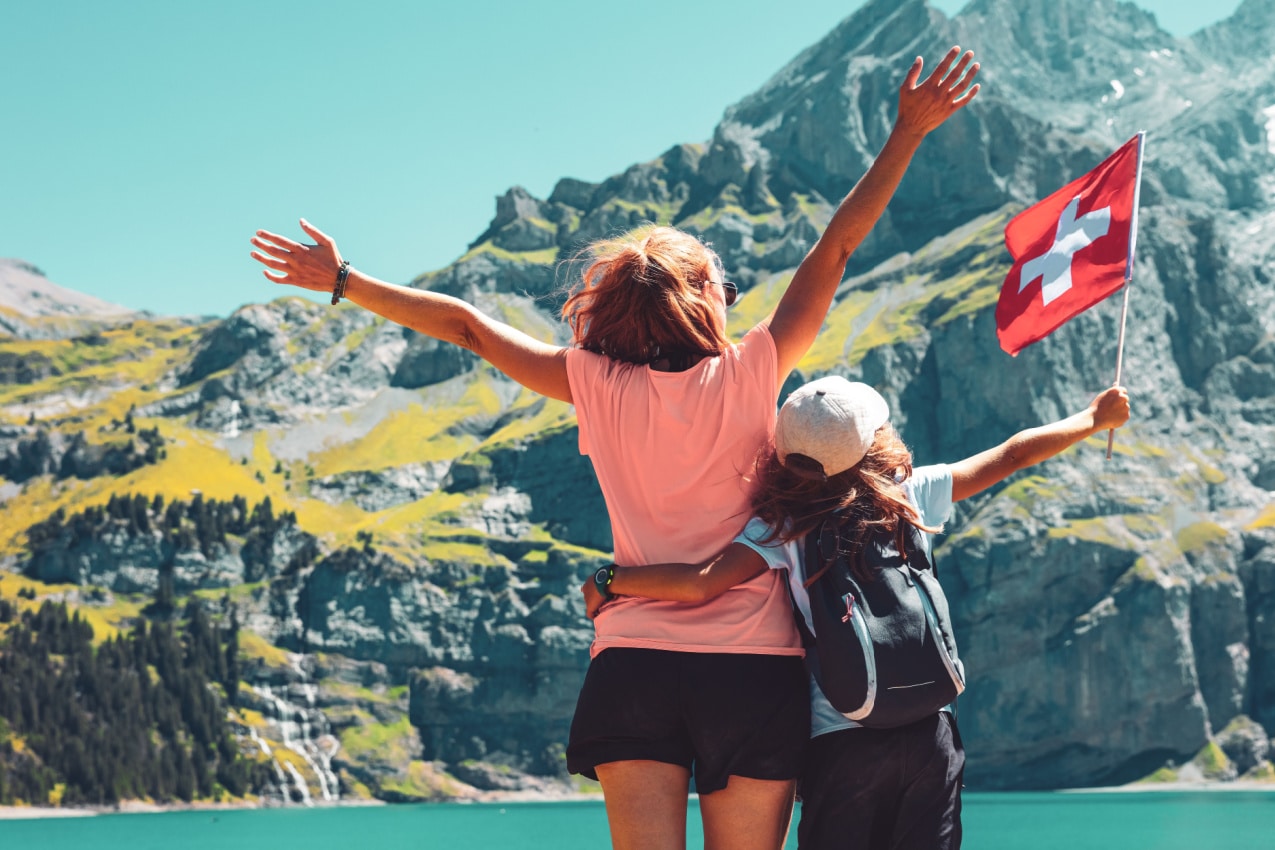
Switzerland welcomes visitors throughout the year, but if you’re looking for the best time to explore without battling thick tourist crowds and enjoy pleasant weather, aim for the spring/early summer (April to June) or the early fall (September and October).
Here’s the scoop:
Best Weather: Late spring, summer, and early autumn offer mild temperatures and longer daylight hours, making them ideal for outdoor activities and sightseeing.
Low Crowds: Spring and fall are the seasons when crowds thin out. Lush valleys and mountains are adorned with colorful wildflowers or vibrant foliage, creating perfect conditions for hiking. In spring, you can still catch snowy peaks without the ski crowds.
Best Prices: Spring and fall seasons are not only low on crowds but also on prices. Hotels, flights, and tours see significant drops in cost during these times. The peak tourist season in Switzerland is in the summer and winter, so this is the time when prices are at their highest.
Ski Time: For ski enthusiasts, the period from December to February offers prime conditions at alpine hot spots across Switzerland. Keep in mind that the mountains can get crowded at the height of the ski season, so if you want to dodge the crowds, consider springtime, as the mountains may still have snow waiting for you.
So, whether you seek pleasant weather, fewer crowds, budget-friendly options, or the thrill of skiing, there’s a perfect time for every preference.
How to Stay Safe in Switzerland
When exploring Switzerland, keeping a few tips in mind can make for a safer experience:
- Keep your belongings, including your passport, secure. Bring your identification with you, as the police may ask for it
- Be cautious on trains, especially overnight; don’t place valuables or identification in overhead compartments
- Never leave food or drinks unattended
- Steer clear of areas with demonstrations and large gatherings for your safety
- When hiking in rural and mountainous areas, stay on marked paths
- Consider purchasing a Swiss Rail Pass for convenient travel on buses and trains throughout Switzerland
- Save on drinking water by bringing a reusable bottle and drink from the tap water in Switzerland — it’s fresh and 100% drinkable
- If you don’t feel confident to roam around Switzerland alone and have a tight budget, take advantage of free walking tours conducted by local volunteer guides
- Use the Too Good To Go app to purchase discounted food from supermarkets, restaurants, and cafes
- Use apps like Omio and Moovit for easy and efficient navigation while getting around in Switzerland
Emergency Numbers
- International Emergencies: 112
- Fire Brigade: 118
- Police: 117
- Medical/Ambulance: 144
FAQ
The tap water in Switzerland is safe to drink, and you’ll find numerous public water fountains and taps along mountain trails to refill your water bottle. Unless you are explicitly informed that the water is not suitable for drinking, feel free to hydrate yourself.
Cybercrime in Switzerland is possible but it’s not common. Nonetheless, the Canadian government reminds travelers that this typically occurs when tourists use public Wi-Fi networks, which cyber criminals try to target to steal credit cards or personal information from users.
Avoid using public Wi-Fi networks and making purchases on unprotected websites. Never click a strange link in an email or a text message that requests your credit card information.
Credit card and ATM fraud are concerns not unique to Switzerland but extend globally, from Mexico and Japan to paradisiacal destinations like the Bahamas. International travel advisories consistently offer similar guidance for every destination: pay careful attention if others are handling your card, opt to withdraw money from banks or inside malls where security is present, and avoid using card readers with irregular or unusual features.
Yes, drink spiking is possible in Switzerland, especially during nighttime outings. However, you can easily avoid it by not leaving food or drinks unattended, especially in the care of strangers. It’s advisable not to accept drinks from people you don’t know, and always keep a close watch when your drink is being prepared.
Switzerland: The Beautiful Sanctuary Awaits You
Switzerland secured its spot as the 10th safest place on our global map.
Crime, while present in minimal doses, prompts the advice to exercise normal precautions—especially in vibrant cities like Basel, Bern, Geneva, and Zurich.
Natural beauty goes hand-in-hand with natural hazards, but Switzerland’s adept management of avalanches, floods, landslides, and earthquakes keeps risks at bay.
Public transportation in Switzerland is not just efficient but remarkably safe, with railway officers ensuring order and security. As for roaming around towns, the easily recognizable Swiss police are there for you, approachable and helpful!
Consider visiting Switzerland in the spring, early summer, or early autumn for a perfect blend of mild weather and fewer crowds. And while travel insurance isn’t mandatory, it provides an extra layer of comfort, ensuring you can explore worry-free.
Safe travels!

